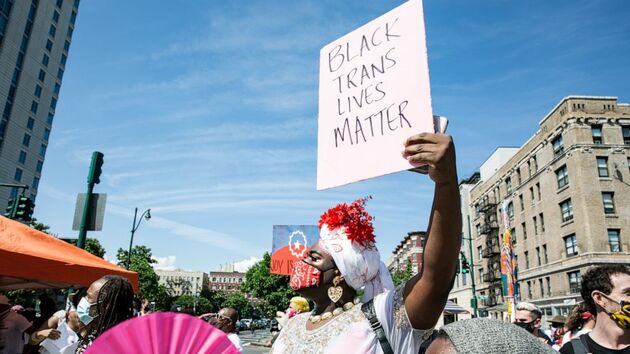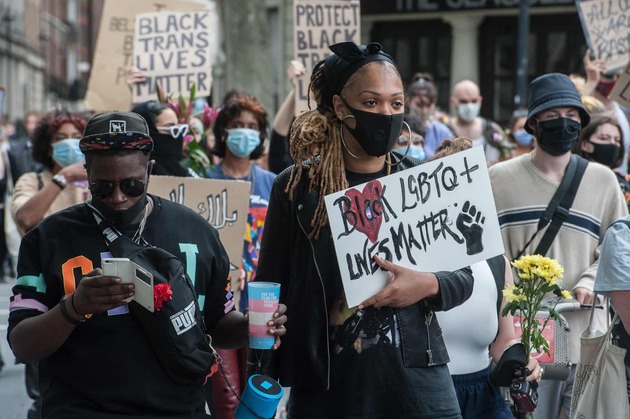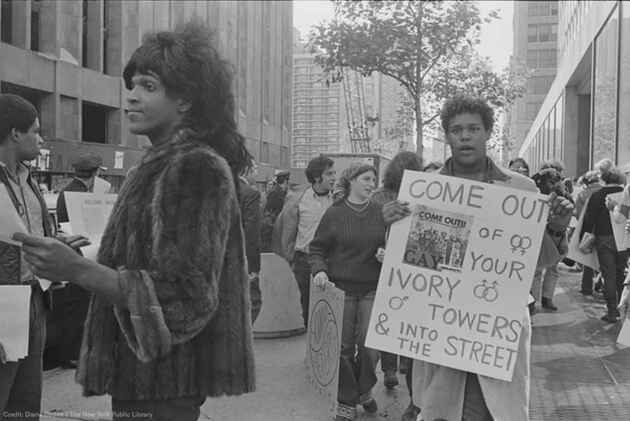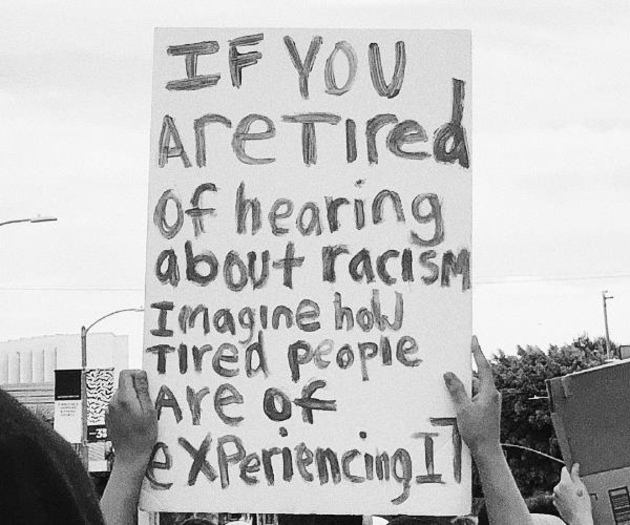Black Lives Still Matter and This Must Include Queer Black Lives
Last June we saw the world come together to stand by Black lives in an unprecedented manner, but over a year on and it seems pertinent to remind everyone that Black lives still matter. That this is not a trend, you can’t post a black square and be done. Anti-racism work is lifelong work, dismantling white supremacy is going to take all of us, but Black lives are depending on it. This month also marks Black History Month, a month of celebrating and honouring Black History. A month of utmost importance in a world that too often silences and erases Black history, with Black LGBTQ+ history being even less acknowledged. Yet, as this month comes to an end it’s important that we hold a strong resolve to celebrate and uplift Black voices every single month of the year. We need to amplify Black queer stories from our history, but we also need to do the same for the Black LGBTQ+ change-makers of the present, because history is still ongoing and their voices matter. Black History Month may be coming to an end, but it feels as though we are at an important moment for Black history, a tipping point for Black Lives Matter, a movement sparked by deaths that should never have happened. Yet the fight is not over yet, not even nearly, and we must remain steadfast in our commitment to create a world where Black lives not only matter but can flourish.

Andy Jean, a costume designer, celebrates Black Trans Lives at the Juneteenth Jubilee in Harlem, 2020
Black LGBTQ+ voices and needs have been central to the Black Lives Matter movement from the very beginning and part of the campaign’s success has been due to their intersectional approach and strong resolve to not leave any Black voices out. The movement was founded in 2013 by three Black women, Alicia Garza, Patrisse Cullors and Opal Tometi, two of which identify as queer, and has rallied support in response to the tragic deaths of Mike Brown and Eric Garner in 2015 and George Floyd and Ahmaud Arbery in 2020. Although these names have become symbols for a movement against racial violence, they are sadly not the only ones that have been lost to it. Black trans people around the world continue to be attacked and murdered at a heartbreakingly high rate. In June last year trans man Tony McDade, 38, was shot and killed by police, making him the third person a Florida police officer had murdered in just two months. Then on June 9th two Black transgender women were murdered, Riah Milton and Dominique "Rem'mie" Fells in separate violent attacks. On top of this, we know that Black LGBTQ+ youth experience disproportionate levels of ostracization, bullying, isolation and violence, with a study in 2017 showing that they also reported significantly higher levels of rejection and isolation than their peers. The study was conducted by the Human Rights Campaign and the University of Connecticut and they added that “Only 11% of youth of colour surveyed believe their racial or ethnic group is regarded positively in the U.S.” James Baldwin, a gay African American novelist, playwright and activist who died in 1987, often spoke about the intersectionality of sexuality and race, pointing out that “A black gay person who is a sexual conundrum to society is already long before the question of sexuality comes into it, menace and marked because he’s black or she’s black. The sexual question comes after the question of colour; it's simply one more aspect of the danger in which all black people live.”

Black Trans Lives Matter March, London, June 2020
It is exactly this that has spurred on a movement within a movement in the creation of hashtags #BlackTransLivesMatter and #BlackLGBTLivesMatter, bringing very needed attention to the intersection of sexuality, gender and race and why we must all stand up for Black LGBTQ+ lives. This movement is not just happening online, with demonstrations and protests also taking place around the world, including at the Brooklyn Museum in New York where a monumental 40,000 people showed up for trans Black lives. It’s not just Americans who are saying enough is enough, with thousands also taking to the streets in London for a Black Trans Lives march, inspired by the original Black Lives Matter movement. The co-organiser of the London march, photographer and activist Ren Mars explained “We firmly believe until Black trans lives matter, absolutely everywhere, Black lives broadly won't really matter anywhere. We're tired of asking for permission to be seen and heard and left to live as we are - we're demanding it now.” This may be a movement that started in America, but it is just as relevant in the UK and across our global society, Ren continues "We shouldn't delude ourselves into thinking this doesn't happen in the UK - we know for a fact that it does. We know because we live it, and we know it when we see it happen to someone else even in a far-flung part of the world that isn't us. If it happened to that person it could happen to me, it could happen to any of us."

Marsha P. Johnson handing out flyers at NYU, 1970
The timing of the explosion of Black Lives Matter coming to a head in Pride month seems more than coincidental, a steadfast reminder that the two fights are intrinsically linked. The fight for LGBTQ+ equality was spearheaded by Black trans people and Black lesbians. The acceptance and liberation that many queer people are able to experience today was only possible because of them and the Stonewall riots are an important piece of Black LGBTQ+ history. This timing also meant that many Pride events this year centred conversations about race and intersectionality, an aspect that will hopefully remain in all future Pride’s too. Global Pride, the first worldwide LGBTQ+ gathering, chose to focus the event on Black Lives Matter. Organiser, Steve Taylor explained “The Pride and Black Lives Matter movements share histories of being founded by LGBTI people of colour, and of being founded to fight systemic, cultural and institutional intolerance and discrimination. It’s only right that we use Global Pride to raise the voice of people of colour from within our community, and so many Prides have already provided content that really shouts the Black Lives Matter message loud and clear.” The 24-hour digital event was put together in collaboration with the organiser of Black Lives Matter and was used to bring attention to the violence and oppression experienced by Black LGBTQ+ people. This wasn’t the only LGBTQ+ event drawing attention to racism, with queer people around the world coming together to speak up in the fight against white supremacy. UK Black Pride also celebrated it’s 16th birthday this year, Europe’s largest celebration for LGBTQ+ people of African, Asian, Caribbean, Middle Eastern and Latin American descent, was not slowed down by the pandemic, hosting a day of celebration and creating a safe place for queer people of colour to be seen. Lady Phyll, founder and Executive Director, spoke of the success of Black Pride UK “I don't have to justify our existence anymore, UK Black Pride is at the core of our pride movement… I feel that we have achieved, is what we always set out to do. We provide a safe space, a haven, where people can belong, and be with their chosen family. We centre black and POC queer voices in a way that no other pride does.”
From the start, Black Lives Matter has simultaneously also been about LGBTQ+ lives, and in the same way when we speak of LGBTQ+ equality we must also be discussing racism. Black LGBTQ+ people exist, and we cannot fight one form of injustice without fighting the other. The momentum we are seeing in the fight against racism is monumental, but we can’t let it slow down. A hunger for change is amongst us, but this is a marathon not a sprint, as model and activist Munroe Bergdorf explains “We’re definitely going through a very formative time in history, centuries old systems of oppression are finally being acknowledged and confronted in a way that I never thought I would see in my lifetime. As someone who has been navigating the activism space for a while now, it’s a great relief to see conversations coming into the mainstream, that only a few years ago were deemed too controversial to touch… It’s all well and good drawing attention to the issues, but we need to focus on our active response and solution building, community is everything and if we can’t rely on our governments, we need to learn to rely on each other.”


